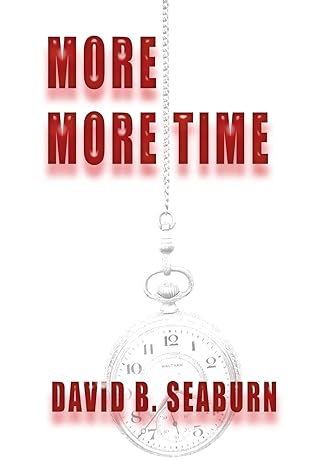ABOUT THE BOOK
In this novel of love and loss, of hope and the constraints of time, we are introduced to Maxwell Ruth, a sixty-two year old history teacher who is obsessed with Abraham Lincoln, disappointed in his chosen career, frustrated with a life less great than he had hoped, and desperate for a relationship with a woman. After a fall down his basement stairs, Max starts hearing a simple, yet puzzling message:
endingtimeendingtimeendingtime
Little does he know that these words will have meaning for the other key people in his life, as well. Hargrove Stinson, Max’s best friend and fellow history teacher, becomes involved with Max’s neighbor, Beth, a massage therapist; Beth’s husband, Bob, becomes the unwitting inspiration for Gwen Stinson to confront the inadequacies of her marriage to Hargrove and to embrace the possibility of change for the first time.
And then there is Constance Young, a secretary in Max’s doctor’s office, vivacious, sensuous, who will give Max the one thing he has never had---love. Under the surface of these lives are loss, abuse, infidelity and a search for something different. Each could use More More Time, but the clock is always ticking and time is always short.
Maxwell Ruth, thoroughly steeped in the legacy of the 1960s has grown cynical over the years. He loathes the apathy of his students and yet seems unable to change the course of his life. Both of his parents were killed in separate though equally freakish accidents. He has never been in love and he feels time is running out. Constance Young will prove to be the love of his life. He will die with Constance at his side, while giving his annual recitation of the Gettysburg Address.
Constance Young, in her mid-fifties, is the secretary at Max’s doctor’s office. She is a widow with a story to tell. She takes a liking to the owlish Max that surprises her coworkers. They begin a relationship that ends in love.
Hargrove and Gwen Stinson married when Gwen became pregnant. Hargrove “did the right thing” by marrying her even though it was unclear whether he loved her. When Gwen had their daughter, Sally, Hargrove’s love for her kept the marriage alive. After Sally committed suicide in college, though, Hargrove and Gwen’s relationship began a slow, nearly invisible downward spiral from which neither seemed able to escape. Gwen was frequently hospitalized and Hargrove found an accommodating massage therapist, Beth Hazelwood, that helped him escape from his woes.
Beth and Bob Hazelwood, both in their late thirties, are struggling in their marriage after Beth learns that Bob has been unfaithful. She is also frustrated that Bob seems to have no ambition. Beth’s early sexual abuse at the hands of her father form the background for many of her struggles. Bob, one of Max’s former student’s, doesn’t understand what to do with his life or his wife. A long forgotten gift from his former teacher will prove transformative. And a serendipitous encounter with Gwen Stinson, will transform her life.
Each of these characters is faced with the fickle nature of time, assuming there will always be More More Time, yet faced with the pressing reality of endingtime. This story is a humorous, tender, yet raw, look at how time shapes the lives of six people whether they recognize it or not.
